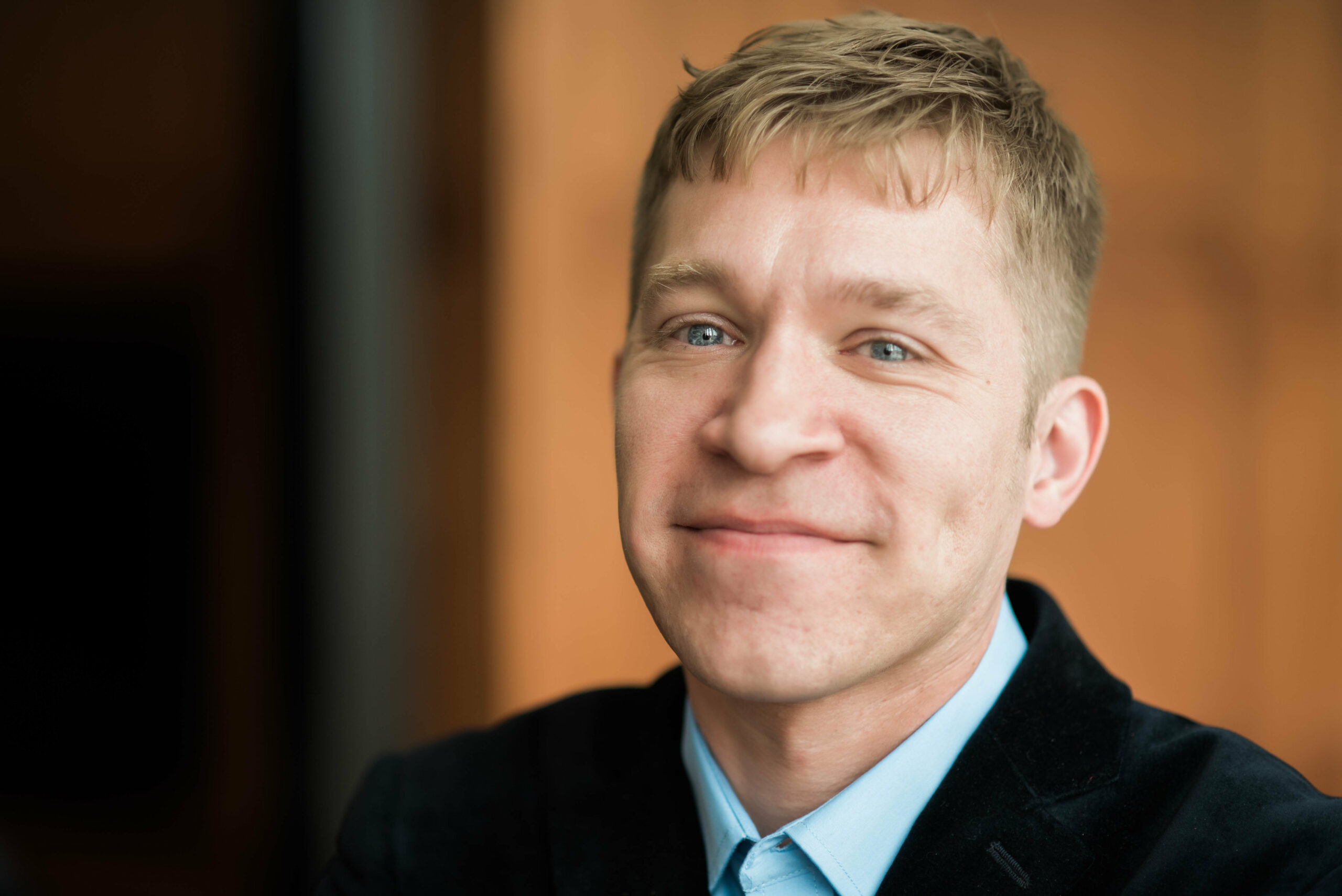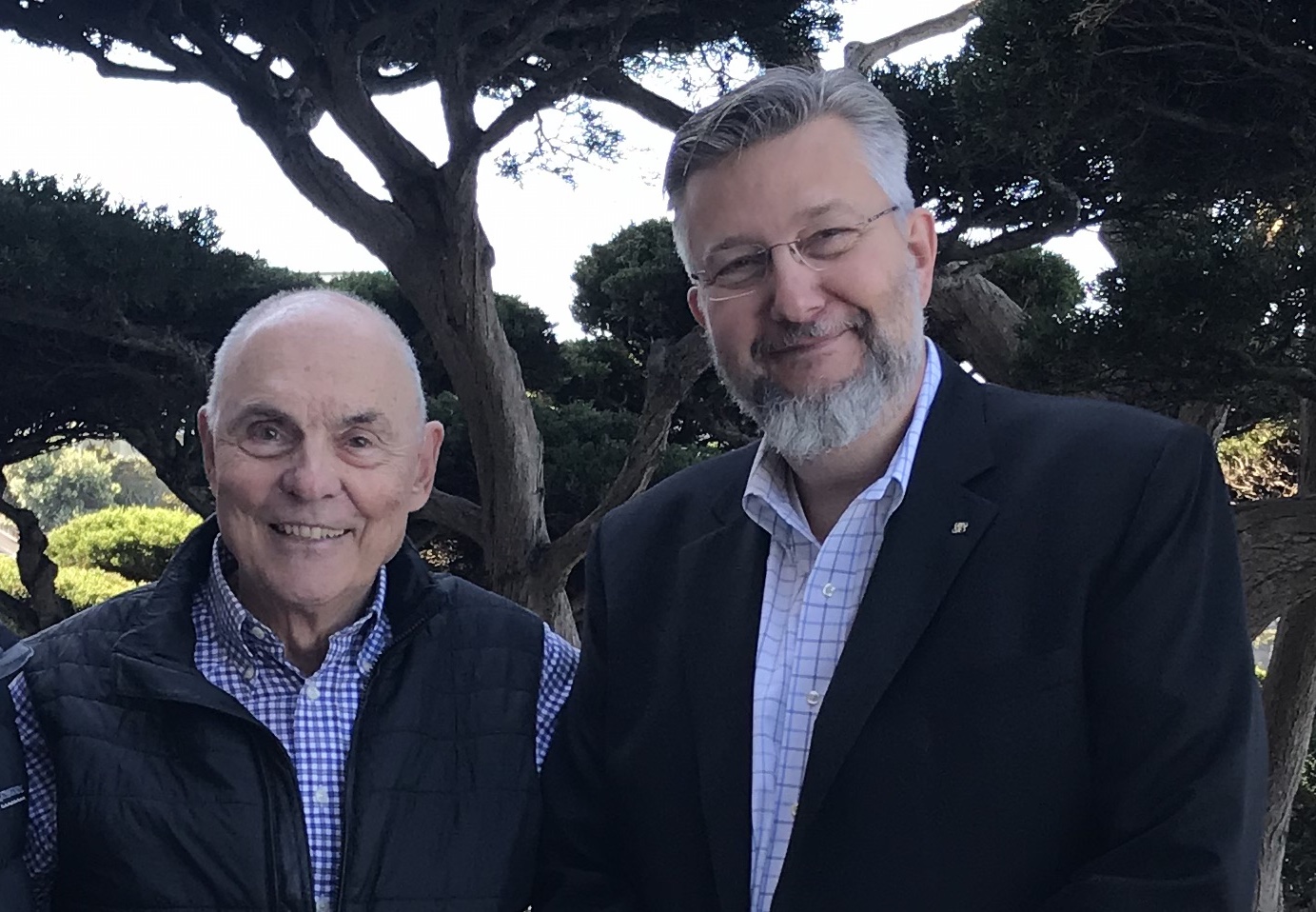Originally from the United Kingdom, Andrew Taylor channeled a lifelong interest in the United States and politics into a career as professor of political science at North Carolina State University, where he has taught since 1995.
“I take the teaching part of my responsibilities very seriously,” Taylor comments during a recent interview. Five years ago, he and economics professor Stephen Margolis started a discussion-based seminar for students. “We talk about a book or a series of readings on a public policy issue. Students come in having read the materials. We have a lengthy discussion, using Liberty Fund procedural rules to structure the discussion.”
“The Liberty Fund structure sets the expectation that students do the heavy lifting and do most of the discussion,” Taylor continues, explaining how he facilitates more than leads the discussion. “It allows them to do that without ever cross-examining one another.”
The seminar requires a high level of intellectual engagement, and the best discussions include students with various ideological leanings who can robustly and respectfully critique each other’s perspectives. As Taylor explains, “The tremendous discussion is one reason why the seminar has such a good reputation on campus. It’s known as a great academic experience outside the classroom.”
Josiah Keilson, a senior majoring in economics with a minor in political science, enjoys the seminar structure and the opportunity to encounter and discuss new ideas with his peers. “You have to be willing to confront ideas that are different than your own and that might make you a little uncomfortable. It allows you to grow as an individual, because it allows you to communicate clearly and practice listening in order to analyze and mutually understand.”
“The importance of leading with listening and being willing to consider other people’s point of view even when you’re on the opposite spectrum” is one of Keilson’s main takeaways from his experience in the seminar.
Rusty Maur, who graduated in May 2015 with a master’s degree in economics, participated in the seminar for three years. “Every time it was different,” he says. While the discussion topics are “all slightly related to politics and economics,” they vary from year to year, ranging from humanities to normative political theory.
Rising senior Zach Goodman is studying both engineering and economics. To him, the relationship between the two disciplines is natural. “Economics impacts every person in every way, throughout every day of their lives. When I’m in my engineering classes, we always look for ideal solutions. The economics side gives a perspective on making things for practical implementation. It is important to have the engineering background in mind to consider actually makes economic policies work.”
In addition to rigorous discussion, networking and mentorship are also two major components of the seminar. As Taylor notes, “When students and faculty are in the same room for nearly five hours, it helps breed a sense of connection between our programs in political science and economics.”
As for mentorship, Taylor is truly interested in the success of his students, and he is happy that both he and Margolis have a reputation on campus as mentors. “I take it seriously and get a lot of personal satisfaction from it. It’s great to have smart students who feel that they can talk to you about your teaching and give input. This is much better feedback than anonymous class evaluation sheets.”
Taylor’s openness to feedback and discussion is an apt reflection of what he tries to foster in student seminar participants. When students are willing to participate in a respectful discussion about a variety of ideas, they can, as Maur puts it, “engage in sound learning.”










